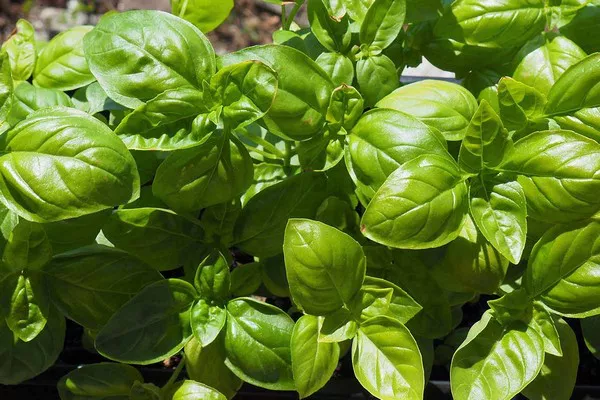One of the most significant challenges faced by gardeners and farmers alike is the relentless assault of pests on their precious vegetable crops. These pests can wreak havoc, leading to reduced yields, poor crop quality, and frustration for growers. However, with proper knowledge and proactive measures, you can effectively protect your vegetables from pests, ensuring a bountiful harvest.
Understanding Pests
Before delving into pest control strategies, it is essential to understand the types of pests that can affect your vegetable garden. Pests encompass a wide range of insects, animals, and even plant diseases that can harm your crops. Some common vegetable garden pests include aphids, cutworms, snails, slugs, and various types of caterpillars. By identifying the specific pests in your garden, you can tailor your pest management efforts more effectively.
Companion Planting for Pest Control
One natural approach to pest management is companion planting, a technique that involves planting certain vegetables, herbs, or flowers alongside your main crops to deter or confuse pests. For example, marigolds can repel nematodes, and basil can help deter aphids and whiteflies. By strategically arranging your garden, you can create an environment that makes it challenging for pests to establish a strong presence.
Crop Rotation
Crop rotation is an age-old practice that can help disrupt the life cycle of many pests and diseases. By alternating the types of vegetables planted in a specific area of your garden each season, you reduce the likelihood of pests building up in the soil. This technique is particularly effective against soil-borne pests, such as root-knot nematodes and certain types of fungi.
Use of Row Covers
Row covers are lightweight, breathable fabric materials that can be placed over your vegetable rows to create a physical barrier between your plants and pests. These covers allow sunlight, air, and moisture to reach your crops while preventing pests from accessing them. Row covers are particularly useful for protecting your vegetables from flying insects like cabbage moths and aphids.
Implementing Biological Controls
Biological controls involve introducing natural predators or parasites to manage pest populations. For instance, ladybugs and lacewings are beneficial insects that can help control aphid infestations. You can also release parasitic nematodes into the soil to combat soil-dwelling pests. However, it’s crucial to research and understand the specific needs of these beneficial organisms to ensure their effectiveness.
Trap Crops
Some pests have a strong preference for specific host plants. By planting a sacrificial crop known as a “trap crop,” you can divert these pests away from your primary vegetables. For example, if you have a problem with flea beetles on your tomatoes, you can plant a border of radishes as a trap crop. The pests will be attracted to the radishes, sparing your tomatoes.
Maintaining Garden Hygiene
Good garden hygiene practices can go a long way in preventing pest infestations. Regularly remove fallen leaves, weeds, and plant debris, as these can serve as hiding spots for pests. Clean gardening tools and equipment to prevent the transfer of pests from one area of the garden to another. Also, avoid over-fertilizing, as excessive nitrogen can make plants more attractive to certain pests.
Organic and Natural Pest Control Products
There are various organic and natural pest control products available on the market, such as neem oil, diatomaceous earth, and insecticidal soaps. These products can help manage pest populations while minimizing harm to beneficial insects and the environment. Always follow the manufacturer’s instructions when using these products to ensure safety and effectiveness.
Handpicking and Trapping
For smaller gardens or localized pest problems, handpicking and trapping can be effective methods. Inspect your plants regularly and remove pests by hand, dropping them into a bucket of soapy water. You can also set up traps, such as beer traps for slugs or yellow sticky traps for flying insects.
Chemical Pest Control
While chemical pesticides should be a last resort due to their potential harm to beneficial insects and the environment, they can sometimes be necessary for severe pest infestations. If you choose to use chemical pesticides, select products labeled for use on vegetables and follow the instructions carefully. Use them sparingly and responsibly, considering the impact on pollinators and other non-target species.
Monitoring and Early Detection
Regular monitoring of your vegetable garden is crucial for early pest detection. By identifying pest problems early, you can take action before they become severe.
Inspect your plants for signs of damage, unusual discoloration, or the presence of pests. The earlier you intervene, the easier it is to manage the situation.
Integrated Pest Management (IPM)
Integrated Pest Management is a holistic approach to pest control that combines multiple strategies to minimize the use of chemical pesticides. IPM involves monitoring, identifying pests, setting action thresholds, implementing preventive measures, and using a combination of biological, cultural, and chemical controls as needed. It is a comprehensive and sustainable approach to pest management.
Conclusion
Protecting your valuable vegetables from pests requires a proactive and multi-faceted approach. By understanding the types of pests that affect your garden, implementing preventive measures like companion planting and crop rotation, and using natural and organic control methods, you can minimize the impact of pests on your crops while promoting a healthy and thriving garden ecosystem. Remember that a balanced and sustainable approach to pest management is not only effective but also environmentally responsible, ensuring the long-term health of your garden and the planet.


